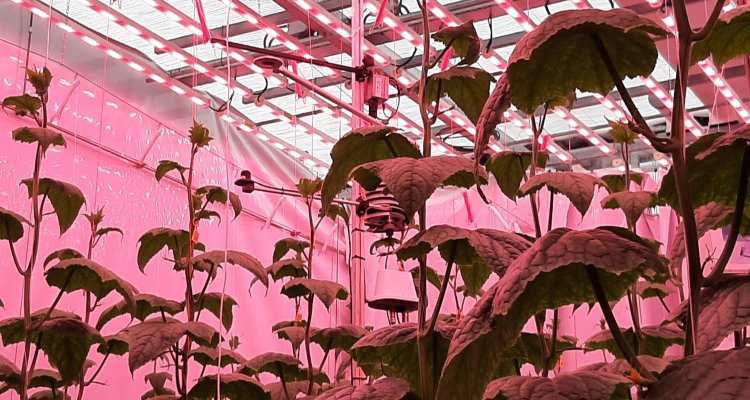
Project
AGROS II: next steps towards an autonomous greenhouse
Greenhouse horticulture faces an increasingly complex environment, affecting business operations. The sector has ambitious objectives towards fossil-free cultivation, reducing chemical pest control, water and nutrients and increasing biodiversity in and around the greenhouse. In addition, fluctuating energy prices, availability of (skilled) labour and supply contracts play a role.
This means that in current business operations, more and more factors have to be taken into account, which is almost impossible for a grower to oversee. Therefore, there is a need for data-driven management of cultivation, in which different data flows can be combined, so that the right choices can be made in cultivation based on objective criteria. This is to be able to cultivate sustainably, energy-efficiently and economically profitable and to be able to deliver the right quantity of products with the agreed quality at the right time.
In recent years, the first steps towards autonomous cultivation have been taken in the (first) AGROS project. Physiological knowledge has been developed to determine what the important plant processes are, sensors to measure these and intelligent algorithms to control the greenhouse. These building blocks have been combined and applied in a successful validation trial, in which three cucumber greenhouses were controlled by cultivation experts, an AI algorithm and a Digital Twin.
An essential part of autonomous greenhouse control is the availability of continuous, automatically collected reliable data of greenhouse climate and the crop. In AGROS, the validation trial was still controlled on the basis of manual measurements of crop characteristics. In the follow-up project "AGROS II: next steps towards an autonomous greenhouse", we will work on the development of "soft sensors". These are combinations of signals from multiple sensors or of a sensor signal combined with a calculation. This implies that there is always a check on the sensor data, which will greatly increase the reliability of the autonomous control and reduce the risks of autonomous control for the grower. The project “AGROS II: next steps towards an autonomous greenhouse” aims to take further steps in the development of sensors and autonomous control of cultivation. We will be working on:
- Physiological knowledge about how crops respond to changing climate conditions, such as light and temperature and to different watering strategies. This knowledge is integrated into existing crop growth models that can then be used in the control algorithms.
- Reliable and robust sensors. In order to enable autonomous cultivation control, we will work on the development of sensors, vision technology and “soft sensors”.
- Intelligent algorithms. We will work on further development of intelligent algorithms based on the Digital Twin and Reinforcement Learning algorithm, in which sensor data is integrated and in RL the control of cultivation actions is also included.
The project “AGROS II: next steps towards an autonomous greenhouse” is a public-private partnership in which the Greenhouse Horticulture business unit of Wageningen University & Research collaborates with Nunhems/BASF Vegetable Seeds, Cultilène, Mechatronix, Stichting KIJK, Delphy, Greenport West Holland, Agrolux, Van der Hoeven Horticultural Projects, VDL ETG, and Source.ag, with funding from the Municipality of Lansingerland, the Hagelunie Innovation Fund and the Top Sector Horticulture and Starting Materials.